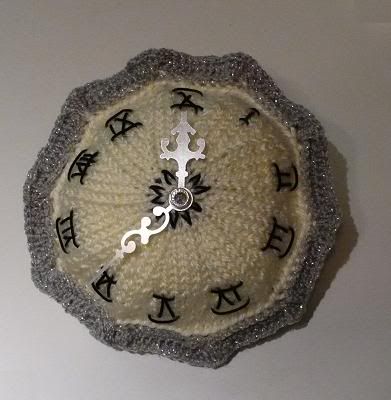Hello, Professors! This is CraftyGryphon, Second Year Slytherin, turning in her Charms assignment. Traveling to any era has its hazards, chief among them the difficulty of learning how the locals mark the passage of time. Do loud bells peal from the highest tower in the land at regular intervals? Is the entire population able to glance at the sun and know how long they have until teatime? Or did something truly absurd happen, forcing the population to discard out a perfectly workable time-telling system because someone decided to invent something completely new? Only once in history, Wizard or Muggle, have the measures of the ancient calendar (introduced in Babylon of old) been set aside. That was in France at the time of the Revolution, when the French people, in their passionate hatred of all the traditional things that reminded them of their past sufferings, invented a new calendar. A completely new way of measuring time, in fact!!
The French Revolution is often considered to have begun on 14 July, 1789 with the storming of the Bastille. However, the period of radical change associated with Robespierre's terror and the guillotine did not begin until after the tumultuous summer of 1792, when the new, largely Jacobin legislative assembly called the National Convention sat for the first time and immediately proclaimed France a republic. One year after that proclamation, on 20 September, 1793, a mathematician named Gilbert Romme presented his proposal for a completely new calendar. It was a period marked by a strong sense of new beginnings and radical reform in many areas of public and private life in France. The Church that had been such a dominant force in pre-revolutionary France had come to be seen as 'anti-revolutionary' and the Gregorian Calendar, with its Saints' Days and religious holidays, was a powerful symbol of the Church's underlying influence. Romme had been commissioned to provide 'a more scientific division [of the year], more in phase with the movements of the heavens, the seasons and tradition. The result was implemented for 13 years between 1792 and 18051 and is known as "The French Revolutionary Calendar".
The year would no longer begin on 1 January, but at the autumnal equinox/anniversary of the proclamation of the Republic: 21 September. Each month was thirty days long, divided into three 'decades' of ten days each. The ten days of the decade were called: primidi, duodi, tridi, quartidi, quintidi, sextidi, septidi, octidi, nonidi and décadi. Every décadi was a rest-day for workers. Each individual date was also given a name - replacing the Saints' Days - with the quintidi and décadi being named after animals and agricultural tools respectively, and the remaining days after trees, bushes and plants. At the end of the year, the five remaining days of the solar year (16 - 22 September) were proclaimed holidays: les Fêtes de la Vertu (Virtue), de la Génie (Talent), du Travail (Work), de l'Opinion (Opinion) and des Récompenses (Rewards). In leap years, an additional Fête de la Révolution was celebrated.
Traditional Calendar Republican Calendar Rough Translation September/October Vendémiaire Wine-harvest October/November Brumaire Foggy November/December Frimaire Frosty December/January Nivôse Snowy January/February Pluviôse Rainy February/March Ventôse Windy March/April Germinal Seeding April/May Floréal Flowering May/June Prairial Grassland June/July Messidor Wheat-harvest July/August Thermidor Hot season August/September Fructidor Fruitful
(Some contemporary wit in England came up with these rather good satirical translations for the new monthly monickers: Wheezy, Sneezy and Freezy; Slippy, Drippy and Nippy; Showery, Flowery and Bowery; Wheaty, Heaty and Sweety.)
Each 'metric' day was divided into ten hours of a hundred minutes of a hundred seconds. (How long was a new Revolutionary second? I leave the maths to those who really really like Arithmancy.)
With the notoriously "if you're not one of Us, you're one of THEM" attitude prevalent in France during those dark and dangerous days (dark and dangerous for anyone NOT part of the Revolution, that is), fitting in is paramount - and frequently, it's the allegedly simple things, like the answer to "Pardonnez-moi, quelle heure est-il?" that can give a Time-Traveler away.
So, I decided to make my own clock, so I wouldn't be caught off guard - by that simple question, anyway. For the most part, my journey was successful. I managed to not subvert the time-stream, and remained, for the most part, undetected by the then-sters. My clock, pictured below, was useful given that most people over the age of ten had trouble coming to grips with the new time-system. In fact, my little clock helped establish myself and my TA shepherd, Cindiknits, as genuine inhabitants of post-Revolutionary Paris.
In short, a month passed, mostly uneventfully except for a bit right at the end, and we came back home. It was an interesting assignment, Professors. I like having my odd little clock, but, between you and me, I'm never going back then again!!
(P.S.: Apologies to TA [Cindiknits](person) for the Flying Flaming Bears incident - it was supposed to be Flambeaux, and I totally understand why you opted to remember none of it. If I hadn't had to make this report, I'd have chosen the Obliviate, too.)

It's ten o'clock. Do you know where your children are?



No comments:
Post a Comment
Your tracks here...